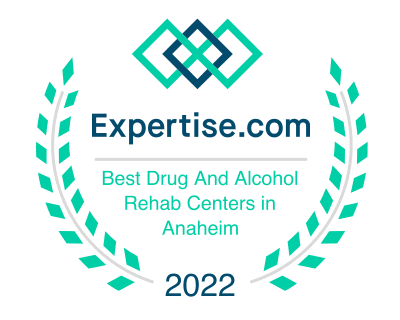Opiates, such as prescription pain medications and illicit drugs like heroin and fentanyl have a profound effect on individuals who continuously use them. Beyond their physical impact, opiates delve deep into the realm of personality, shaping thoughts, emotions, and behavior in ways that are often misunderstood. In this blog post, let’s embark on a transformative journey together to explore the intricate relationship between opiates and personality. By peeling the layers, we can gain a deeper understanding of how opiates shape and alter one’s sense of self.
The Masked Reality: Numbing Emotional Experience
One of the primary ways opiates affect personality is by numbing emotional experiences. Opiates act on the brain’s reward system, flooding it with dopamine and creating a euphoric state. However, this flood of pleasure comes at a cost—the blunting of other emotions, both positive and negative. When under the influence of opiates, individuals may feel emotionally detached, flat, or indifferent, masking the depth and range of their true feelings. It’s as if a veil is placed over their emotions, preventing them from fully experiencing life’s highs and lows. This prolonged numbing can hinder emotional growth, stunting the development of healthy coping mechanisms and emotional intelligence.
The Illusion of Confidence: False Sense of Self
Opiates can also create a false sense of confidence and self-assuredness. The euphoria induced by opiates can make individuals feel invincible, boosting their self-esteem temporarily. It’s like wearing a cloak of unwarranted self-confidence that seems impenetrable. However, this newfound confidence is fragile and dependent on the drug’s effects. Underneath this illusory self-assurance lies a deeper vulnerability that can be further eroded as addiction takes hold. As individuals rely on opiates to bolster their confidence, they become disconnected from their true strengths and struggle to find authentic sources of self-worth.
Strained Relationships: Alienation and Isolation
Addiction to opiates can strain relationships and contribute to social isolation. The pursuit of obtaining and using drugs often takes precedence over meaningful connections with loved ones. As the addiction deepens, individuals may withdraw from social activities, distancing themselves from friends, family, and support networks. This isolation can further deteriorate personality, leading to feelings of loneliness, guilt, and shame. The breakdown of relationships and the loss of social support systems further perpetuate the cycle of addiction and hinder personal growth. It’s as if a wall is built between them and the world, leaving them feeling alone and disconnected.
The Descent into Manipulation: Shifting Moral Compass
Opiate addiction can lead individuals to engage in manipulative behaviors, driven by the relentless pursuit of the drug. As the grip of addiction tightens, moral boundaries may become blurred, and individuals may resort to deceit, theft, or manipulation to sustain their habit. This erosion of moral values can profoundly impact personality, turning individuals into shadows of their former selves. The drive to satisfy the addiction becomes the primary focus, overshadowing personal values, integrity, and empathy. It’s a heartbreaking transformation that can leave individuals feeling lost and disconnected from their own sense of morality.
The Struggle for Control: Loss of Autonomy
Opiates gradually erode an individual’s sense of autonomy and control. Addiction takes hold, driving compulsive drug-seeking behavior and undermining the ability to make rational choices. This loss of control can lead to heightened anxiety, self-doubt, and a sense of powerlessness over one’s own life. It’s like being trapped in a maze, desperately searching for an exit but feeling trapped at every turn. Personality becomes entangled in a web of addiction, further deepening the internal struggle. The loss of control over one’s actions and decisions erodes self-esteem, perpetuating the cycle of addiction and hindering personal growth.
Rediscovering Authenticity: Recovery and Personal Growth
The journey to recovery offers the opportunity to rediscover authenticity and rebuild one’s personality. As individuals break free from the clutches of opiate addiction, they embark on a path of personal growth, reconnecting with their true selves. Recovery involves addressing underlying emotional pain, developing coping strategies, and rebuilding relationships based on trust and honesty. It is a transformative process that allows individuals to reclaim their identity and rebuild a stronger, more resilient personality. It’s like emerging from a long, dark tunnel into the warm embrace of sunlight—a chance to rediscover who they truly are and to live a life that aligns with their values and aspirations.
Unveiling Brain Mechanisms
Substance use disorders and addiction involve profound changes in the brain, affecting areas responsible for pleasure, learning, stress response, decision-making, and self-control. Addictive drugs trigger dopamine surges in the basal ganglia, creating a pleasurable high. Over time, tolerance develops, diminishing the substance’s effects and reducing pleasure from everyday rewards. Cues associated with substance use become powerful triggers, making it difficult to resist thoughts of using. Changes in the extended amygdala and prefrontal cortex contribute to intense cravings, withdrawal distress, compromised self-control, and the challenge of quitting. Understanding these brain mechanisms sheds light on addiction’s complexities and the importance of effective interventions for reclaiming lives from the grip of substance use disorders.
Conclusion:
Opiates wield a profound influence on personality, permeating thoughts, emotions, and behavior. The effects are multifaceted, from the numbing of emotions and the creation of false confidence to strained relationships, moral erosion, and the loss of autonomy. However, recovery offers hope for individuals to reclaim their authenticity and rebuild a stronger sense of self. Through self-reflection, support, and a commitment to change, individuals can embark on a transformative journey that leads to personal growth, renewed connections, and a resilient personality.
In understanding the intricate relationship between opiates and personality, we can foster empathy, reduce stigma, and offer support to those navigating the challenging path of recovery. Together, let’s strive to create a world where compassion and understanding prevail, empowering individuals to transcend the grips of addiction and rediscover their true selves.
Call now to speak confidentially with a medical detox expert.
Sources:
- Psychology Today: Understanding Emotional Intelligence
- Mayo Clinic: Steps to raise your self-esteem
- National Institute on Drug Abuse: Drugs, Brains, and Behavior
- SurgeonGeneral.gov: The Neurobiology of Substance Use, Misuse, and Addiction
This article authored and reviewed by Clare Waismann, M-RAS, SUDCC II, Founder of Waismann Method Advanced Treatment for Opiate Dependence and Domus Retreat, is for informational purposes only and should not be considered medical advice or a recommendation. Consult a healthcare professional for guidance and treatment options. While we strive to maintain high editorial standards, please be aware that information may become outdated. Domus Retreat, its employees, agents, and associated individuals are not liable for any errors, omissions, or consequences resulting from the use of the information provided.







